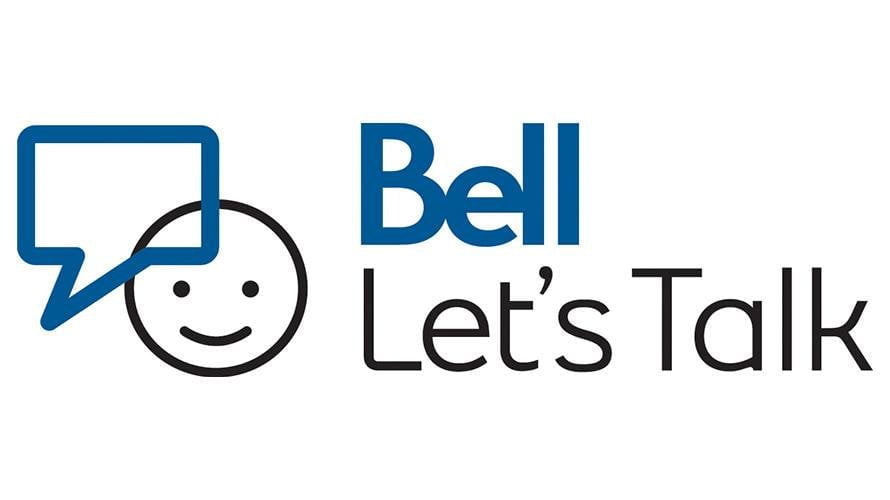Building A Stronger, More Resilient Me
Believe it or not, 2021 is here and it’s as good a time as ever to get started on creating a more resilient, growth-oriented and optimistic mindset. As part of our community engagement and patient empowerment initiatives, Counsellor Veera Grewal, RCC, has been hosting a 4-part series on Mental Health and Covid-19. The third part, which is now live and can be accessed below, touches on two of the most important tools in our mental health toolkit: Resilience and Self-Care.
Maintenance = Resilience = Prevention
The beginning of the year is often a time for both reflection and renewal, processing the past and getting ourselves in gear for the year ahead. It is a time where many of us have a renewed sense of motivation and become more resolute about improving ourselves, learning from the experiences in our past and making the changes we need to better ourselves. When it comes to our mental health, we don’t always have the mentorship, guidance or tools that we may need to get to where we want to be. This video provides some tips to help us move ourselves in the right direction and build the right muscles to do so. Many of us are the foundation and rock for our friends, families and colleagues but end up neglecting our own needs in the process. Self-care, just like our physical hygiene and upkeep becomes an important part of ensuring we’re setting ourselves up for success, giving us downtime and time to recharge and reset so we can be our best selves each and everyday. Here are some tools which are covered in more detail in the short 15-minute webinar below to ensure you’re looking after yourself in the process while building up your resilience.
Meaningful Self-Care Practices
The building blocks of self-care are proper nutrition, emotional regulation, hydration, movement, play and sleep. All of these are important elements to ensure you’re not neglecting your own needs and looking after yourself. Here are some helpful tips:
Cultivate a Morning Ritual
For example: Plan to wake up at a certain time, make a hot drink, spend a set amount of time doing yoga, journaling or writing out your schedule and reading
Personalize Your Plan
Recognize what you are doing and when you feel joy, calm and grounded. Draw on what has helped you cope in the past and what you loved doing as a child.
Remember that Prevention is More Efficient Than Dealing with Problems in the Future
Daily self-care settles the nervous system, lowering your baseline cortisol levels
Some Ideas For Daily Self-Care
Keep a post-it note with affirmations on your mirror and read them as you brush your teeth
List to motivational or inspirational podcasts and audio when driving and working out
Set meaningful intentions and connect them to your activities – “Because I do X for myself….”
- “I am prioritizing my needs and am less reactive to triggers in my daily life.”
- “I start the day by giving a gift to myself.”
Gratitude
Gratitude is a state of being thankful, appreciative and ready to return kindness. It increases our resilience by increasing positive emotions like satisfaction, happiness and pleasure. Gratitude also enhances our ability to combat stress and fights rumination and overthinking. Gratitude even reduces inflammation in the body and improves sleep.
Helpful Tips For Incorporating Gratitude Into Our Lives
Say “thank you” more – to yourself, to others, to nature, to your higher power
Acknowledge 3 things you are grateful for everyday, recognize the source
Write a gratitude letter or email to someone you know
Engage in mental subtraction (imagine your life as is a past positive event had not occurred)
Optimism
Optimism is hopefulness about the present and future. It is a determinant of mental health, resilience, academic or career success, physical health and overall happiness (Reivich et. Al, 2005). It helps us move forward, and is like a light at the end of the tunnel. Optimism is 25% heritable – meaning they are passed down from parents to children but not necessarily in a genetic way (Plomin, 1992). It is a thinking style that can be learned.
Some Helpful Optimism Tips
Understand circumstances, choose to focus on aspects you can control
Notice when you start to think worst-case scenarios
Intentionally produced positive thoughts to counter negative thoughts, write down the best possible outcomes for areas in your life
Connect with optimistic people and limit your news intake (especially headlines meant to elicit a strong emotional response)
Therapeutic Journaling
Journalling can be used to express and process emotions and thoughts, helping us to make sense of our internal experiences and gain new perspective. Self-reflection leads to greater self-awareness, and can boost your immune system (Balkie & Wilhelm, 2005). You can journal anywhere, and anytime: in a phone note, laptop, on scrap paper or in a journal. Let go of your perfectionism and write to process instead of perfecting your words.
Some Journaling Ideas
Free Flow: Write anything that comes up consistently for a set number of minutes
Targeted: Write about a topic that you have been ruminating about
Unblock: If you’re feeling stuck, start writing about your concrete surroundings, incorporating your senses
Remember that resilience is learned, and resilience is like a muscle that we can flex to become stronger. It requires that we put in work, and if we can remember that our lives become better when we work on ourselves, self-care can become more rewarding and enable us to lead better lives.
Watch the full video below and access other videos in the webinar series here.
Topics include managing fear and anxiety and tools for parents and caregivers.
The next webinar in the Mental Health and Covid-19 series will be available in January 2021. As part of Building a Stronger More Resilient Me Initiative, further resources on Building a More Resilient Body with Physical Exercise and Understanding Pain and Our Bodies will be available in the coming months. To sign up to receive a notification when these are available, fill out the form below
Related Links on Our Website
Veera Grewal, RCC and booking a counselling appointment
Covid-19 and Mental Health Webinar Series
Motor vehicle accidents and mental health
10 questions you should ask yourself if you’re considering seeing a counsellor
Resources
K. Reivich, Jane Gillham, T. M. Chaplin, and M. E. P. Seligman. (2005). “From Helplessness To Optimism: The Role Of Resilience In Treating And Preventing Depression In Youth”. Handbook Of Resilience In Children. 223-238.
Robert Plomin, Michael F. Scheier, C.S. Bergeman, N.L. Pedersen, J.R. Nesselroade, G.E. McClearn,
Optimism, pessimism and mental health: A twin/adoption analysis,
Personality and Individual Differences, Volume 13, Issue 8, 1992, Pages 921-930, ISSN 0191-8869,




